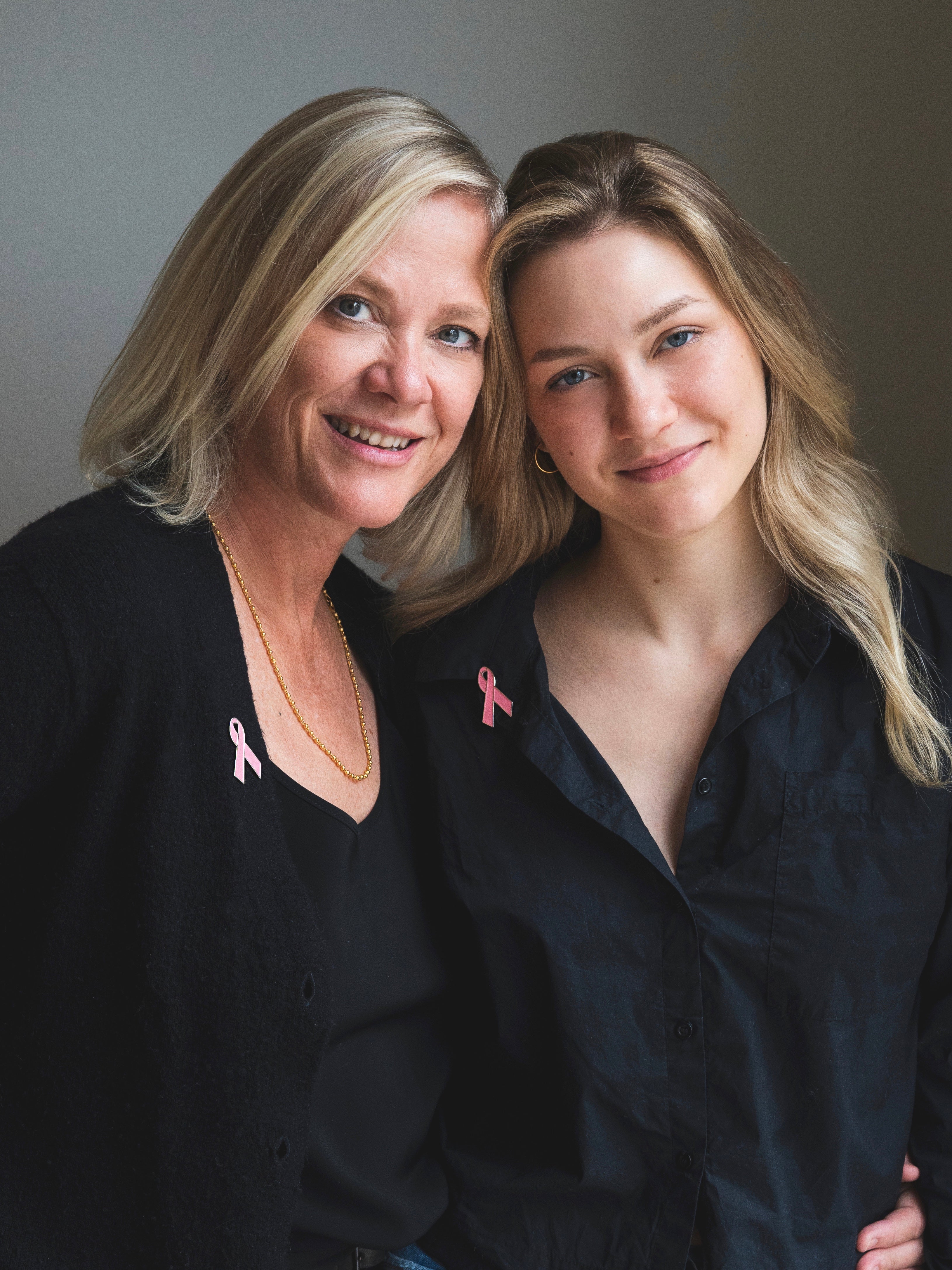The Journal
#KIPCARES: Our Mothers on Breast Cancer Detection and Recovery
The month of October is recognized as Breast Cancer Awareness month.
Currently, American women have a 1 in 8 chance of developing invasive breast cancer over their lifetimes. While this disease is both devastating and tragic, science has made significant advancements in recent years which have contributed to the growing success rate of recovery and remission. Breast Cancer Awareness is a cause that’s very close to our hearts; two of our team members are the daughters of breast cancer survivors. As an all female team, we especially recognize the importance of the cause, and the need for support for women going through the disease.
This year, we’ve partnered with not one, but three charities to help promote Breast Cancer Awareness and to be a part of the cure. You can read more about the initiative and shop our limited edition (Self)Care for the Cure gift bundle here. We asked our mothers, survivors of breast cancer to speak on their experiences to shed some light on the subjects of detection and recovery from their perspectives.
As we know, early detection is crucial when it comes to the prognosis of a breast cancer diagnosis. Detection, however, can be tricky as not all women present symptoms. Each case is unique, some being more difficult than others. For our mothers, Angela and Ingrid, the process of detection differed greatly for both women.

Angela:
"I completely buried my head in the sand initially, and embarrassed to say that a few years on after a noticeable change I still tried to ignore it. This absolutely consumed me with fear and worry and honestly I think I knew then this was not going to be good news. At the time I could not find the courage to even call the doctor's office. Finally after an emotional conversation my daughter took charge of the situation and helped me with that first dreaded doctors appointment."
"My advice to other women now is of course do not ignore the warning signs early on even if you think its nothing get it checked out. Treatment could be a lot less with early detection. My doctor at the time said you are going on a journey!. How right she was. Find some support from a family member or friend and have them come with you to doctors appointments; I would often say to my husband, what did they say? on our way home. It is a lot to absorb on your own, and the initial shock of a cancer diagnosis can scramble your mind temporarily."

Ingrid:
"I always had cysts in my breasts and I had a few on the right side where the underwire of my bra hit. I always thought I had adequately taken care of it by having yearly and then biannual mammograms as ordered by my doctor. At that time I didn't know about the dense breast tissue factor and the need for ultrasounds. I was confidently attending my mammogram appointments whenever the notices told me to. I didn't think I had anything to worry about. Then I got a call from the mammogram screening program about a week after my mammogram, they told me they wanted me to come back for an ultrasound. I blew it off thinking it was just another cyst, however, I knew things were bad when the radiologist started looking intensely and taking measurements when doing the ultrasound. I was there for about an hour and a half and I knew. I cried on the way home but I was in disbelief. My advice to other women would be: know whether you have dense breasts or not, and if you do, demand an ultrasound every year in a six month spacing from your mammogram."

One of the most difficult parts of going through breast cancer is the part that no one warns you about: the recovery. For most women, the process of breast cancer treatment is impersonal, mathematical and lacks empathy. Even when treatment is finished, the lasting effects of the process, both physical and emotional, can take years to heal. No roadmap exists for dealing with the after effects of cancer treatment, it is up to the individual to find what helps to heal them through trial and error. For our mothers, the road to recovery was assisted by a few simple things:
Angela:
"Having my family's support always kept me strong and it was equally important for me to be strong for them and prove I could win this battle. This is as much a mental state of mind as it is physical, although sometimes difficult I always walked the dogs daily and tried to keep up with household chores during treatment. I did however, underestimate how long it would take for me to recover and how hard it would be. As they say everyone’s story is different but for me I would say never ever give up. I thought a couple of months recovery and all would be good. Three years now post treatment and I still feel I am making improvements both mentally and physically! Find something physical you enjoy as a start, for me it was spin cycling to music (and really loud too) to help me build back my muscle strength. I only ever worked out in the past to help with weight loss but now I totally see it is more important for my muscle strength and confidence. A hard struggle for me every day to try and be my old self again and sometimes not always doable, so don’t be hard on yourself and perhaps embrace some of the new stronger you and a new phase in your life."
Ingrid:
"Every person has a different experience and if you don't have nodes taken from the under arm it is probably less difficult for your body to adapt. I found that the surgery for the nodes under the armpit really affected the way my body moved.Talking to a cancer therapy counsellor was helpful to me because they are specialty therapists who deal with women who have breast cancer all the time. They know the shock, disbelief, and helplessness for women who had formerly “been able to conquer the world”. I've always done exercise and it's been helpful but it is possible to overdo it when you’re on the frail side. Talking to friends and the support of family was essential when I really needed it, you really find out who’s there for you and it can be surprising. Massage treatments are very helpful, I've also been working with a physiotherapist and a trainer to regain balance, strength, and symmetry in my body. There's a depth that happens when you go through something like this, it strengthens your ability to be compassionate and appreciative."






Leave us a comment